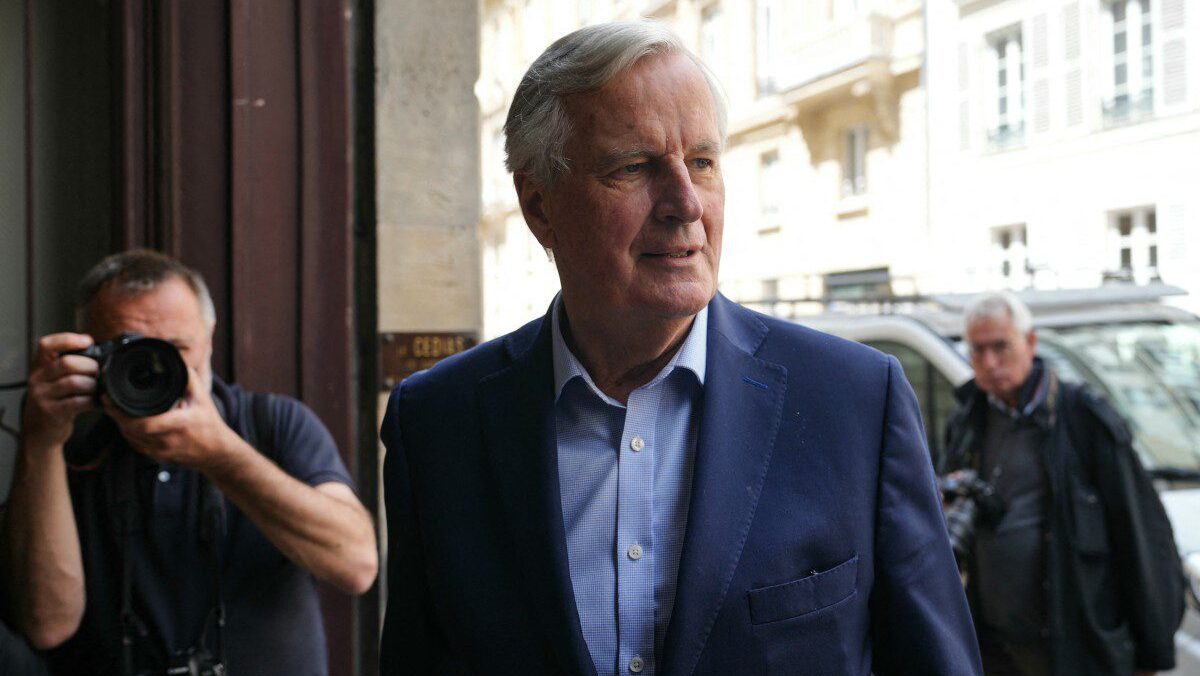
Michel Barnier
Photo: Dimitar DILKOFF / AFP
After weeks of painstaking negotiations, Emmanuel Macron has chosen former minister and European Commissioner Michel Barnier to head the formation of a new government. The handover of power between Gabriel Attal and Michel Barnier is due to take place on Thursday, September 5th, at 4 p.m.
His name had already been mentioned during the summer as a potential candidate to succeed Gabriel Attal, following the legislative elections on July 7th, but Michel Barnier had deliberately stayed out of the discussions, simply stating that he was “standing by.” His appointment was decided on the evening of Wednesday, September 4th, over dinner with the head of state.
The choice of Michel Barnier indicates that the French president has decided on a centre-right coalition for the new government.
Michel Barnier is a historic figure in the Gaullist political family. He has served as a member of parliament and several times as a minister, with two main areas of focus: international relations (he was Minister of Foreign Affairs under Jacques Chirac) and environment and agriculture. He has also held the post of European Commissioner on several occasions and was vice president resident of the European Commission. In Brussels, he had the thorny task of negotiating with the United Kingdom on the conditions for implementing Brexit.
In 2021, he ran in the Les Républicains party primary with a view to the 2022 presidential elections. He came in 3rd place, behind Valérie Pécresse and Éric Ciotti and ahead of Xavier Bertrand, who was also considered for a time for the post of prime minister by Emmanuel Macron. At the time, Barnier defended a markedly right-wing programme on migration issues: a moratorium on immigration; limits on family reunification; an end to State Medical Aid (Aide Médicale d’Etat, or AME), and reform of the right of asylum. His past positions should earn him the punctual support of the deputies of the Rassemblement National (RN), which is essential if he does not want to be toppled by a motion of censure—promised, precisely, by the RN to his rival Bertrand if he had been chosen.
However, Michel Barnier is not at all identified in the French political landscape as a figure with convictions strongly held on the Right. He is better known as a cold technocrat, marked by his long years in Brussels. His statesmanlike stature and physical presence—he is 1.90 m tall, is known for a certain elegance of manner that may appeal to the average Frenchman and recalls a past generation of politicians—contrast with his lack of personal charisma, which should prevent him from seriously competing with Emmanuel Macron.
His appointment is a smart political move on the part of the President. Michel Barnier should be virtually certain of securing a majority to pass the nation’s budget in October. His profile as a European civil servant will obviously be reassuring in Brussels, where there have been fears of economic adventurism should the left-wing coalition or even the RN come to power. But he will have to prove himself if he is to win over the voters who, in June, certainly did not vote for either the Right or the Left to end up with a Brussels administrator at the head of the country.
Since the announcement of his appointment, the left-wing coalition has made its discontent known loud and clear and believes that it has been “robbed of the election.” Weeks of intense social mobilisation, strikes, and demonstrations are sure to follow.
